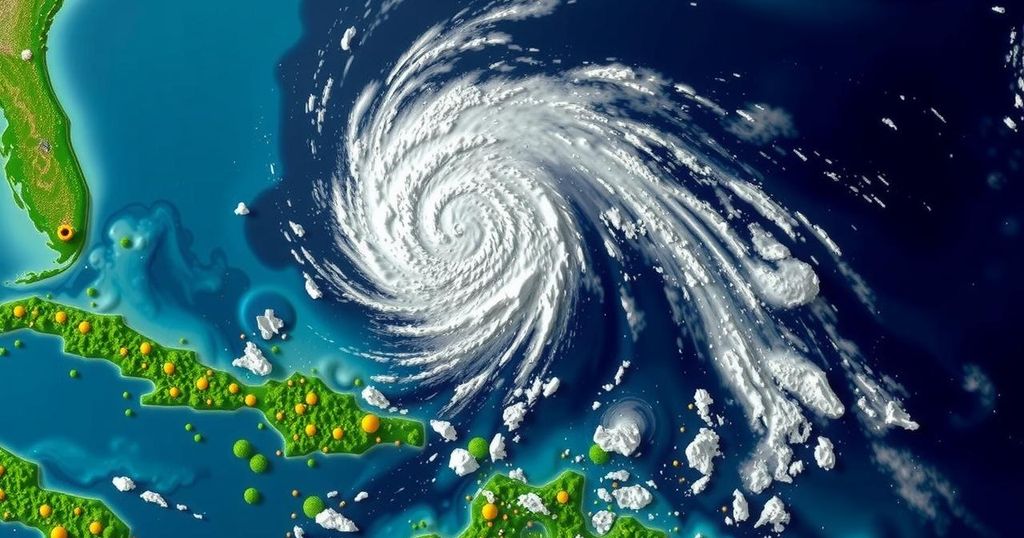Declining Prospects for Tropical Storm Nadine’s Formation

The chances of a low-pressure system in the Atlantic forming into Tropical Storm Nadine have diminished, now rated at 20 percent for the next 48 hours and 30 percent for the next week. The NHC cautions that upper-level winds may inhibit development, although the system could still bring heavy rain to northern Caribbean regions. No impacts are expected for the U.S., particularly beneficial for Florida, which faced recent hurricanes.
Current predictions regarding a low-pressure system in the Atlantic, once identified as potential Tropical Storm Nadine, indicate a significant decrease in the likelihood of its development. Monitored by the National Hurricane Center (NHC) under the designation AL94, the system originated off the western coast of Africa and has exhibited varying probabilities of evolving into a tropical storm throughout the week. As it now moves east of the Leeward Islands, the chance for development has notably dwindled; the NHC reports that the probability of formation within the next 48 hours stands at a mere 20 percent, while the chance within the next seven days is slightly higher at 30 percent. While there remains a possibility for some slow development in the coming days, the NHC warns of strong winds that could diminish the system by week’s end. According to the NHC update, “Showers and thunderstorms associated with a trough of low pressure located a few hundred miles east of the Leeward Islands remain disorganized.” Although the disturbance is expected to move westward at approximately 20 mph, passing close to the Virgin Islands and Puerto Rico soon, the upper-level winds are likely to inhibit further development by late weekend. Despite the downturn in development prospects, the disturbance is still anticipated to generate substantial rainfall and gusty winds across the northern Caribbean islands. AccuWeather’s senior meteorologist, Tom Kines, indicated, “The chances of this developing into a tropical storm or even a hurricane seem to have diminished over the past couple of days. Having said that, there’s still a window that this could develop. If it’s going to do it, it’s got to do it in the next two, maybe three days.” It is worth noting that the current conditions do not pose a threat to the United States, which is particularly reassuring for Florida, recent victim of two major hurricanes—Helene in late September and Milton earlier this month. As of the latest update, there are no active named storms in the Atlantic Ocean. Nevertheless, meteorologists caution that the 2024 Atlantic hurricane season remains active until November 30, with conditions still conducive for storm formation. In addition to AL94, NHC staff are monitoring another system in the western Caribbean, which also faces low odds of intensifying into Tropical Storm Nadine.
The monitoring of low-pressure systems in the Atlantic Ocean is a critical aspect of hurricane season forecasting, particularly for regions vulnerable to tropical storms and hurricanes. The National Hurricane Center utilizes various monitoring systems to assess and predict the development of these systems, calculating their chances of becoming named storms based on meteorological data. The current situation with AL94 illustrates the volatility and uncertainty typical of such weather systems, highlighting the importance of continuous observation and timely updates.
In summary, the prospects for the formation of Tropical Storm Nadine have significantly decreased, with current probabilities standing at 20 percent for immediate development and 30 percent over the next week. Strong upper-level winds are forecasted to further inhibit any potential strengthening. The situation remains under observation, with predictions for heavy rainfall affecting several Caribbean islands. As the season continues, monitoring by the NHC will be crucial in understanding the evolving weather patterns in the Atlantic.
Original Source: www.newsweek.com






